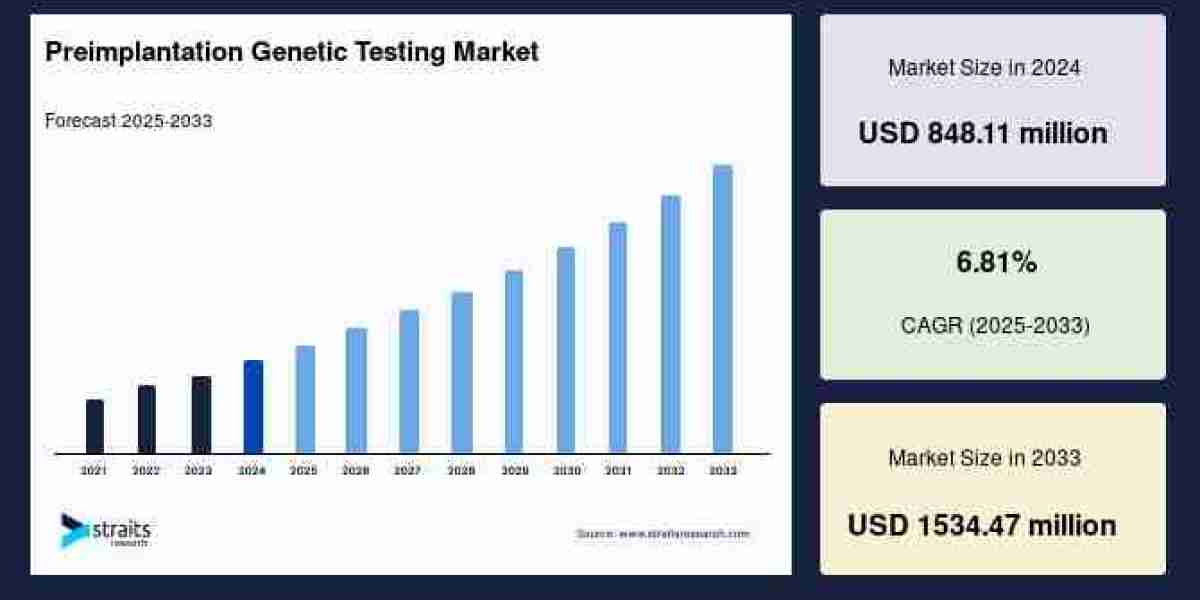Overview of the Omega 3 Market
The omega 3 market has witnessed substantial growth in recent years, driven by the increasing awareness of the health benefits associated with omega 3 fatty acids. Omega 3, which is found in fish oils, flax seeds, and other natural sources, is renowned for its positive effects on heart health, brain function, and overall well-being. With rising consumer interest in preventative health and dietary supplements, omega 3 is becoming an essential part of daily nutrition.
In 2023, the global omega 3 market was valued at approximately USD 3.54 billion. This market is expected to grow significantly during the forecast period of 2024-2032, with a projected CAGR of 8%. By 2032, the market value is anticipated to reach around USD 7.60 billion, driven by increased consumer demand for omega 3-rich products in both developed and emerging markets.
Global Omega 3 Market Size & Share
Market Size
In 2023, the omega 3 market reached a value of USD 3.54 billion, reflecting a steady growth trajectory. As the understanding of omega 3's health benefits continues to expand, its adoption in supplements, functional foods, and beverages has surged. The market's growth is further supported by the rising consumer preference for plant-based omega 3 alternatives such as algae oil, catering to vegans and vegetarians.
Get a Free Sample Report with a Table of Contents:
https://www.expertmarketresearch.com/reports/omega-3-market/requestsample
Market Share by Application
Dietary Supplements: The dietary supplement segment holds the largest market share in the global omega 3 market. Omega 3 supplements are widely available in various forms, including soft gels, capsules, and liquids, making them a convenient option for health-conscious consumers.
Functional Foods and Beverages: There is a growing trend towards incorporating omega 3 into functional foods and beverages such as fortified dairy products, juices, and snacks. This segment is witnessing rapid growth as consumers seek to enhance their daily nutrition without additional supplements.
Pharmaceuticals: Omega 3 is also used in pharmaceutical products to treat various medical conditions, such as high cholesterol, cardiovascular diseases, and inflammatory disorders. The increasing number of health-conscious individuals seeking omega 3 for medical purposes is fueling the growth of this segment.
Animal Feed: Omega 3 is also incorporated into animal feed, especially for fish farming and poultry industries, to enhance the nutritional profile of meat and seafood. This segment is expected to grow as the global demand for protein-rich food increases.
Market Share by Source
Fish Oil: Fish oil remains the dominant source of omega 3 in the global market. Rich in EPA and DHA (eicosapentaenoic acid and docosahexaenoic acid), fish oil is the most widely used source due to its well-documented health benefits.
Algae Oil: As demand for plant-based alternatives rises, algae oil is emerging as a key source of omega 3, particularly among vegetarians and vegans. Algae oil is rich in DHA and is gaining popularity in the supplement and functional food sectors.
Flaxseed Oil: Flaxseed oil, which contains ALA (alpha-linolenic acid), is another significant source of omega 3. While it is less bioavailable compared to fish oil, it remains popular due to its plant-based nature.
Market Dynamics & Trends
Key Drivers of the Global Omega 3 Market
Health Consciousness and Preventative Healthcare: Rising awareness about the importance of omega 3 in maintaining heart health, reducing inflammation, and enhancing brain function is driving market growth. Consumers are increasingly adopting omega 3 as a preventive measure to improve their overall health.
Growing Popularity of Functional Foods: The increasing trend of functional foods, which are fortified with nutrients to provide additional health benefits, is contributing to the growing demand for omega 3. Omega 3-enriched snacks, beverages, and dairy products are gaining traction among consumers seeking convenience along with nutritional benefits.
Aging Population: The global population is aging, and older adults are more likely to seek omega 3 supplements for their cardiovascular and cognitive benefits. This demographic shift is expected to increase the demand for omega 3-based products.
Rising Prevalence of Chronic Diseases: The increasing prevalence of chronic diseases, such as heart disease, diabetes, and arthritis, is propelling the demand for omega 3 as a complementary treatment. Omega 3's ability to reduce inflammation and support cardiovascular health makes it a valuable addition to therapeutic regimens.
Sustainability Concerns: With concerns over overfishing and environmental sustainability, consumers and manufacturers are increasingly turning to alternative omega 3 sources like algae oil. Algae-based omega 3 products cater to the growing demand for sustainable and plant-based supplements.
Emerging Trends
Plant-Based Omega 3 Products: With the rise of veganism and plant-based diets, omega 3 products derived from algae, flaxseed, and other plant-based sources are gaining popularity. This trend is likely to drive the growth of algae oil in particular, as it offers an ethical and sustainable alternative to fish oil.
Innovative Delivery Formats: Manufacturers are introducing innovative formats for omega 3 products, such as gummies, powders, and beverages, to appeal to a broader consumer base. These new delivery formats are becoming increasingly popular, especially among younger consumers.
Personalized Nutrition: The increasing focus on personalized nutrition, where consumers seek products tailored to their individual health needs, is opening new opportunities for omega 3-based solutions. Omega 3 supplements are being marketed as part of personalized health regimens.
Clean Label Products: Consumers are increasingly seeking clean-label products, which are free from artificial ingredients, additives, and preservatives. Omega 3 products with natural ingredients and transparent labeling are expected to be more attractive to health-conscious buyers.
Growth of the Global Omega 3 Market
The global omega 3 market is experiencing robust growth, driven by increasing consumer awareness, growing demand for functional foods, and a rising preference for natural health solutions. The market is projected to grow at a CAGR of 8% from 2024 to 2032, with demand driven by both developed and emerging economies.
Key growth drivers include:
Increased Demand in Asia-Pacific: As the middle class in countries like China and India grows, the demand for nutritional supplements, including omega 3, is expanding rapidly. Omega 3's cognitive and cardiovascular benefits are particularly appealing in these fast-developing regions.
Expanding Applications in Pharmaceuticals: The medical use of omega 3 is expected to increase as more studies validate its therapeutic benefits in managing chronic diseases like heart disease and diabetes. Pharmaceutical applications will continue to drive growth in the market.
Innovations in Omega 3 Sources: The development of algae oil as a sustainable and plant-based alternative to fish oil is expected to provide a significant boost to the market, as more consumers seek vegetarian and vegan omega 3 options.
Market Opportunities and Challenges
Opportunities
Growth in Emerging Markets: Rapid economic growth and increasing health awareness in countries like India, China, and Brazil present significant opportunities for market expansion. Establishing strong distribution networks in these regions can unlock new revenue streams for omega 3 producers.
Rising Demand for Plant-Based Supplements: The surge in plant-based diets and veganism offers a substantial growth opportunity for omega 3 products derived from algae and flaxseed. Consumers seeking plant-based alternatives are increasingly turning to these sustainable omega 3 options.
Omega 3 for Cognitive Health: The growing focus on mental well-being, especially cognitive health in aging populations, presents a huge opportunity for omega 3. As consumers become more aware of the cognitive benefits, the demand for omega 3 in the elderly and children’s health supplements is expected to rise.
Challenges
Raw Material Supply: The supply of fish oil, the most common source of omega 3, can be affected by environmental factors like overfishing, climate change, and sustainability concerns. Manufacturers must explore alternative sources like algae oil to mitigate these risks.
Regulatory Concerns: The global omega 3 market is subject to strict regulatory scrutiny, especially regarding product labeling, quality standards, and safety concerns. Companies need to ensure compliance with local regulations to maintain market access.
Price Volatility: The prices of raw materials like fish oil and algae oil are volatile, which can impact production costs and the final price of omega 3 products. Manufacturers need to manage their supply chains effectively to mitigate these challenges.
Competitor Analysis
The global omega 3 market is highly competitive, with a mix of large multinational companies and smaller, specialized brands vying for market share. Some of the leading players in the market include:
DSM Nutritional Products: As a major producer of omega 3 ingredients, DSM is a leading player in the omega 3 market, offering both fish oil and algae-based omega 3 products.
Nordic Naturals: Known for its high-quality fish oil supplements, Nordic Naturals is a key player in the global omega 3 market, with a strong focus on sustainability and innovation.
Lonza Group: Lonza manufactures omega 3 ingredients derived from both fish oil and algae, positioning itself as a leader in the production of plant-based omega 3 solutions.
BASF SE: BASF is a significant player in the omega 3 market, offering a range of omega 3 products for use in supplements, functional foods, and beverages.
Epax: A leading supplier of high-quality omega
View our related blogs:
Urea Manufacturers
HVAC Companies
Media Contact:
Company Name: Claight Corporation
Contact Person: Faf Warner, Corporate Sales Specialist — U.S.A.
Email: sales@expertmarketresearch.com
Toll Free Number: +1–415–325–5166 | +44–702–402–5790
Address: 30 North Gould Street, Sheridan, WY 82801, USA
Website: www.expertmarketresearch.com
Expert Market Research: Insights & Analysis for Growth
Discover expert insights, market trends, and strategic analysis to drive growth in your industry with Expert Market Research.








